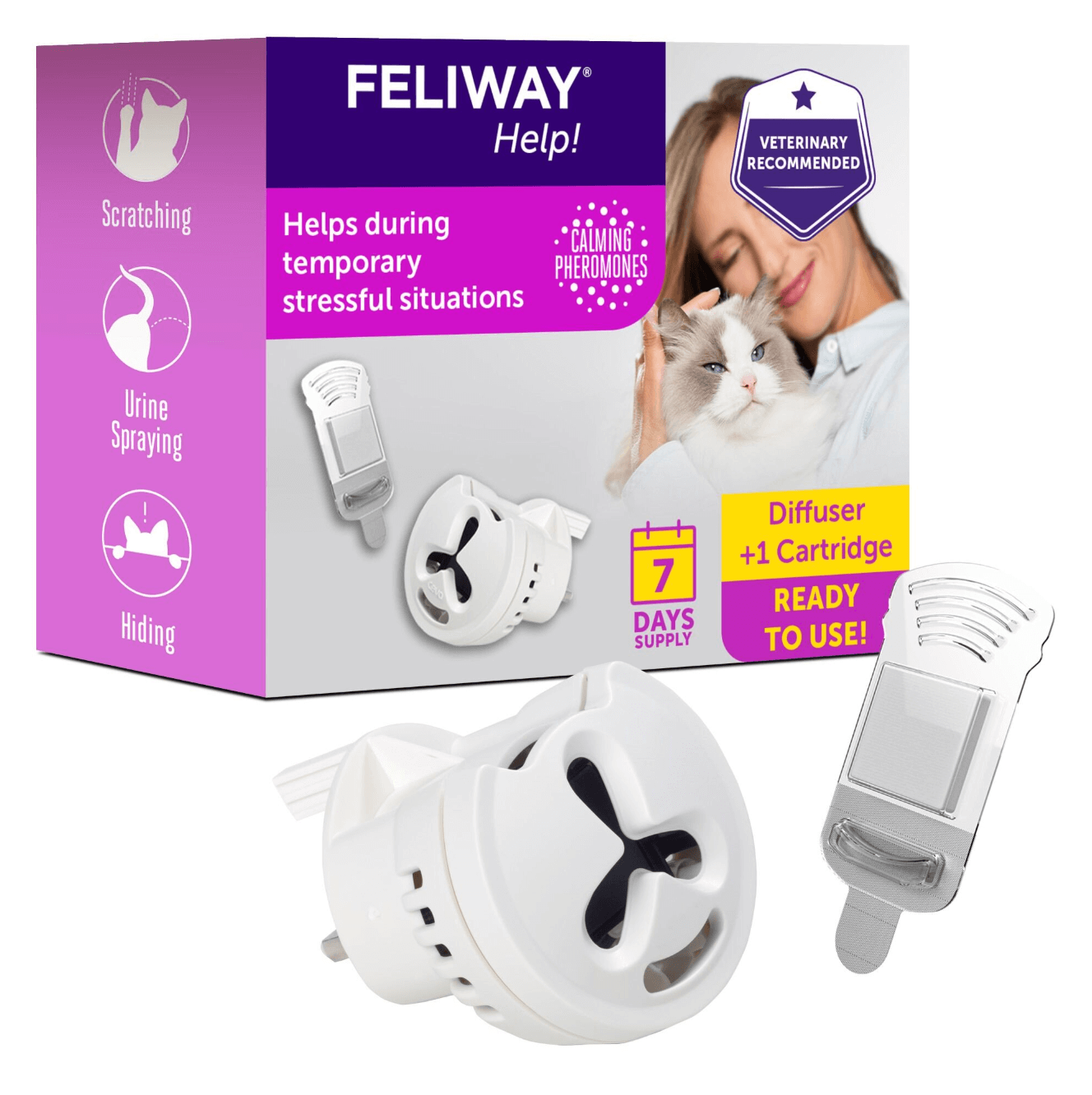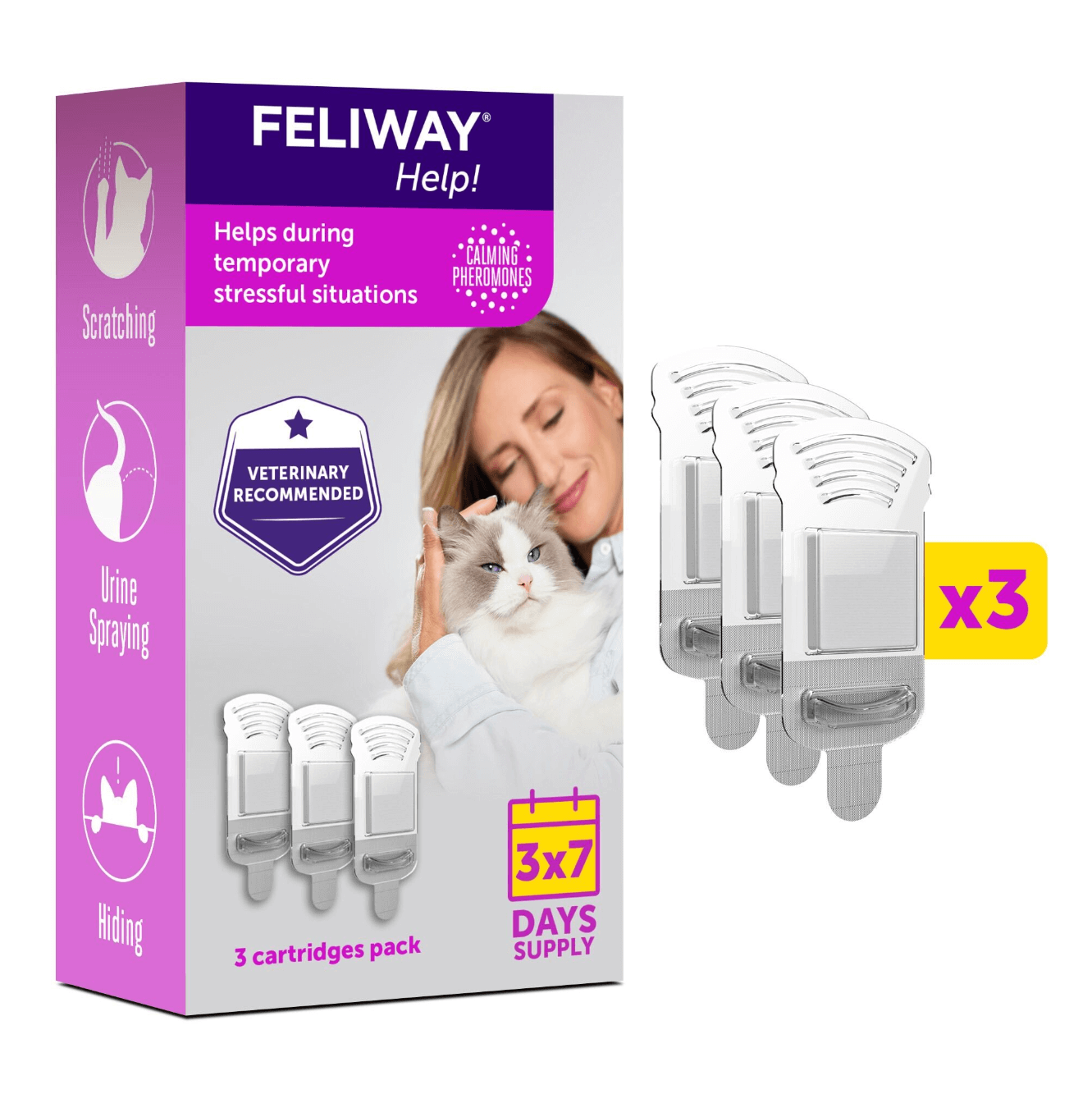
Why Does My Cat Hiss at People?
Does your cat sometimes hiss at other people? Then there is something they are trying to say! Hissing is just one of many ways that cats can communicate. You will likely have seen your cat communicate with you or others through:
- Physical contact: cats will touch noses, and sometimes rub heads and bodies together. They may rub up against your leg, jump onto your lap, and they like to be stroked and groomed.
- Visual body language: you can learn how a cat is feeling by watching their body language – the way they hold their body, tail, ears and eyes. (As one of our Happy Cat Experts explains - a cat slow-blinking at you is a happy sign!)
- Chemical cues: cats have an extremely well-developed sense of smell, which they use extensively for communication. Chemical signalling (pheromones) plays an important role in cat behaviour, including that between a mother and her kittens, reducing stress and anxiety and helping them feel secure in their environment. When a kitten leaves that environment, FELIWAY Optimum effectively replaces that natural pheromone, to help them cope with situations they may find stressful.
- Vocalisation: cats have three main forms of communicating vocally:
- Meowing: it’s important to understand why your cat is meowing – it could be because they are hungry, they want your attention, or they are distressed or in pain.
- Purring: although we normally associate a purr as a happy sign, this is not always the case. It’s important to also consider body language to better understand the reason your cat is purring.
- And, of course – hissing! While this may feel like a more confrontational action, it isn’t always! It can be defensive, an expression of discomfort or annoyance, and more.
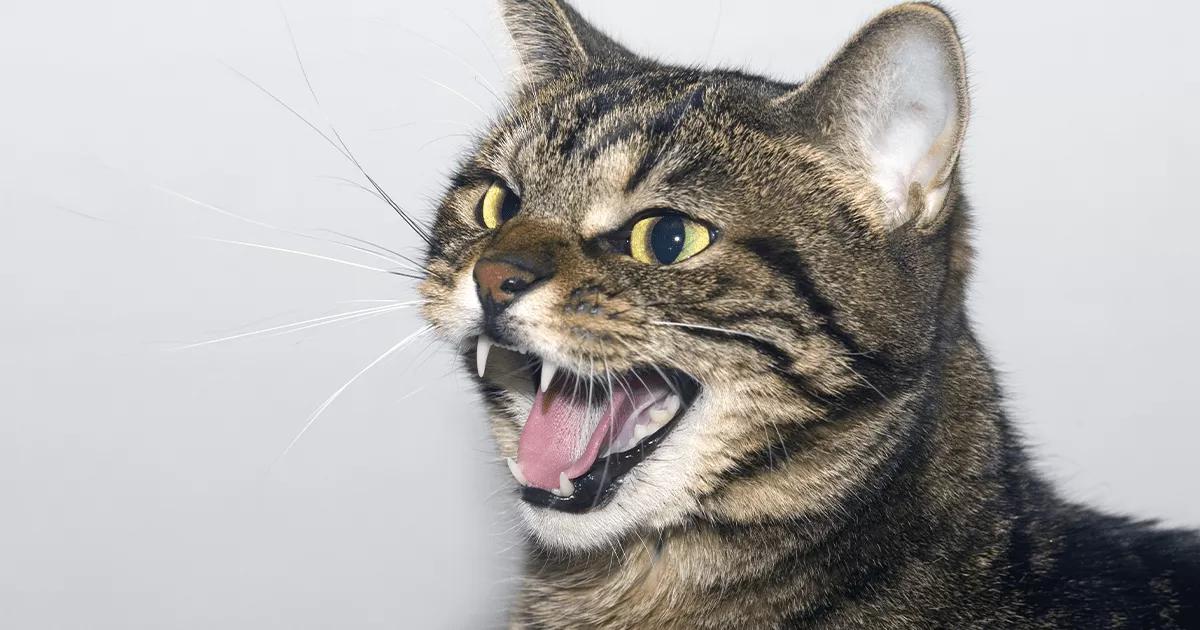
So why does my cat hiss at people?
There are lots of reasons that cats hiss! Often it is a defensive signal when they feel the need to protect themselves. For example, a hissing cat may be feeling under threat and be expressing fear. If you look at their body language, you may spot other signs, such as an arched back or flattened ears. Equally, a hiss may mean that they are showing discomfort – or even frustration – with a situation they find themselves in.
What do cats look like when they hiss?
Cats hiss by releasing a burst of air from their mouth whilst it is open, displaying their teeth. When cats growl – a sign they are not happy – they have their mouth closed or slightly open, and they produce a low rumbling sound. To determine the difference between a growl and a purr, it’s important to relate it to your cat’s body language. If they are relaxed and happy, they are purring; if their body is tense, they have bristled fur on their tails, or they may be cowering, then they are likely growling.
Why do cats hiss?
Avoiding confrontation
Cats prefer to avoid a physical confrontation, so they will hiss to let another cat, animal or person know that they are feeling under threat, and they will attack if the other animal/person does not back off.
In pain
Alternatively, your cat may be in pain and it could be a warning not to touch them. If they hiss when you would normally interact with them, it could be an indication that something is amiss – and they should be checked out by a vet.
A warning
Kittens in a litter may hiss at each other if their playtime is getting a little rough – this could also happen when you are playing with them. If they are getting frustrated with a game (perhaps they can’t catch something), moderate it to ensure they catch their prey.
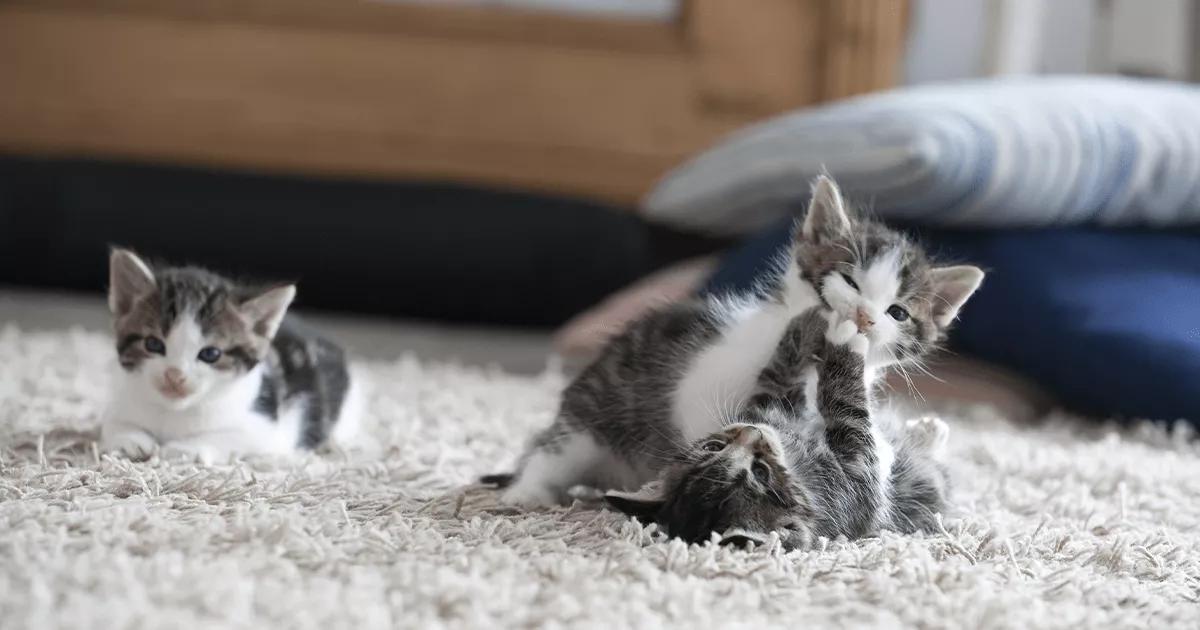
Setting boundaries
A mother may hiss at her litter to set behavioural boundaries, or when she is starting to wean them; she may hiss to let them know she is not going to feed them, and they need to move away.
Feeling threatened
A cat may hiss at a dog if they feel threatened by it. They may have just met and there may be some miscommunication – if the dog is too close for the cat to feel safe, they may hiss to try to get the dog to move away. If they are going to be cohabiting in the future, make sure that both your cat and dog have their own safe spaces they can retreat to, introduce them slowly and take steps to help them become the best of friends.
Reacting to change
Cats prefer routine and everything to stay the same around their home; if you have, for example, moved furniture around, or you’ve had new visitors and perhaps they don’t know how to interact with your cat, you may find that your cat reacts by hissing.
Make changes around the home slowly and over a period of time. Explain to visitors to let your cat come to them in their own time, and not to force any interaction.
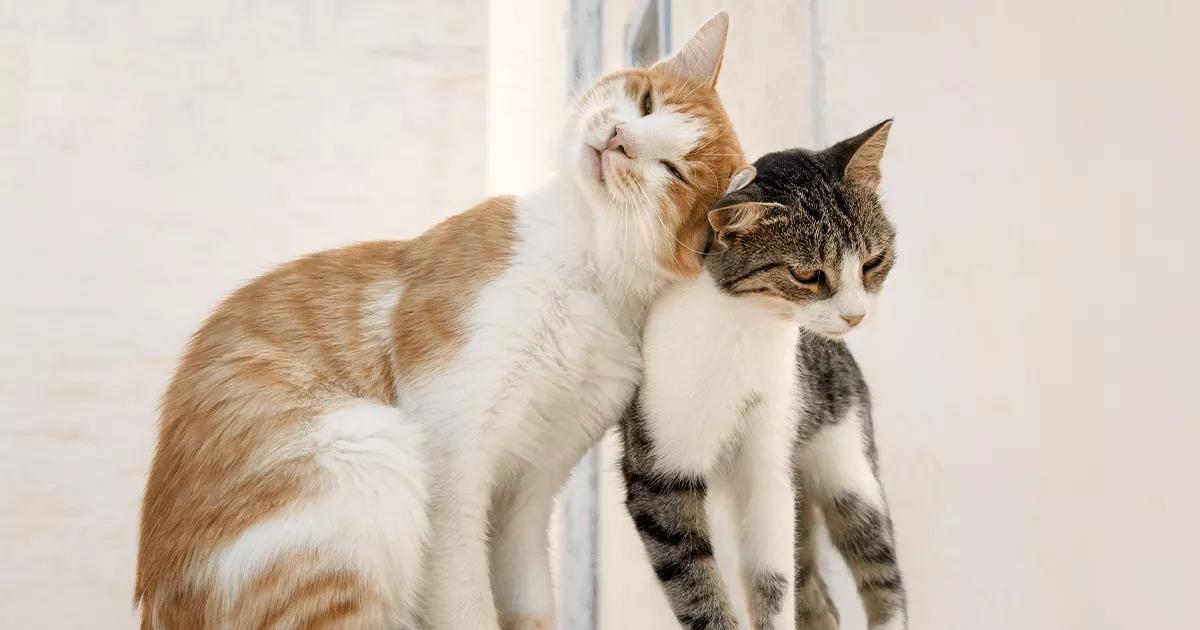
Lack of social skills
Some cats may hiss if they have not had the opportunity to learn how to interact socially with other cats or people, and they may find social situations more challenging. It’s important to understand your cat’s social skills and to start to teach them how to interact with people and other animals from an early age.
What to do if your cat is hissing
Hissing will depend on your cat’s individual temperament – and it makes no difference if they are male or female, or what breed they are.
- Firstly, do not punish your cat for hissing and do not try hissing back at them – this will only exacerbate the situation and make your cat feel more stressed.
- Give them more space and allow them to move away from the situation where they can feel safe.
- Make sure their safe space is always accessible.
- Allow your cat to calm down in their own time.
- Assess the situation and try and work out why they were hissing, and take action to avoid it happening again.
- Use FELIWAY Optimum to support your cat in the home and enhance their serenity. Plug it into the room where your cat spends more of their time, and take steps to make your home more cat friendly.
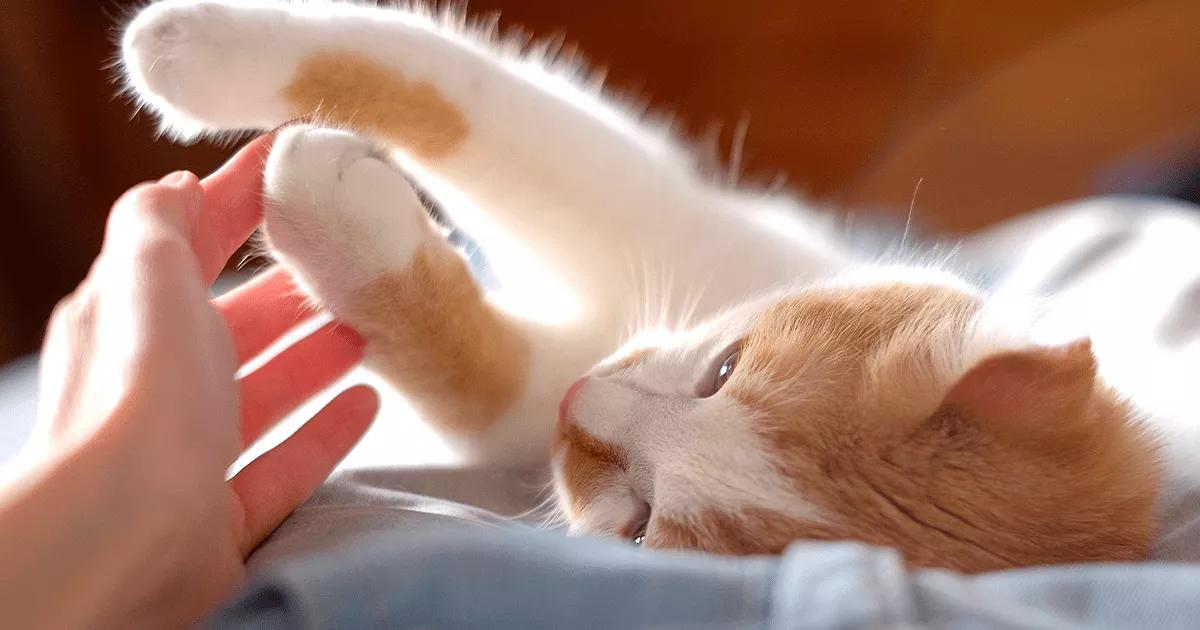
However, if your cat is hissing more than normal, or you have noticed other changes in their behaviour, contact your vet for a checkup. It’s important to find out if your cat is feeling pain or discomfort. Your vet can also refer you to an accredited feline behaviourist to help you support your cat, and help them feel more comfortable in challenging situations.













